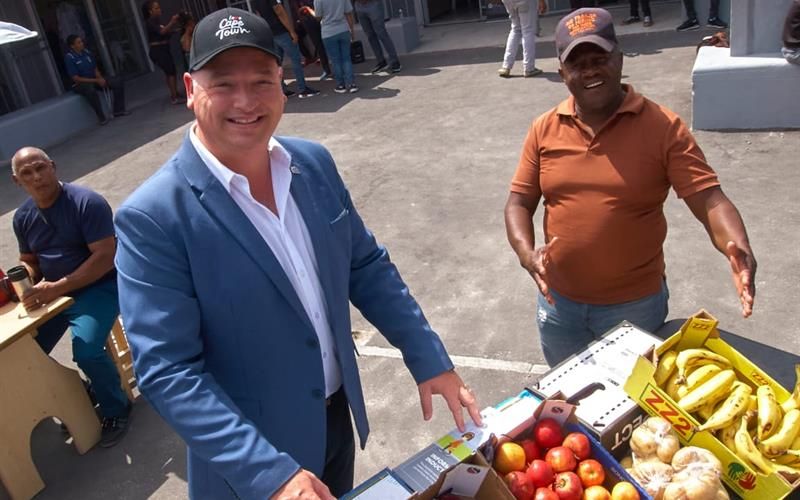Cape Town, the vibrant heart of South Africa’s Western Cape province, is known for its ability to adapt and innovate. Recently, the city announced an ambitious plan to invest R56 million in infrastructure projects aimed at improving informal trading sites throughout the metropolitan area. This initiative is part of Cape Town’s long-term strategy to bolster its informal economy.
Infrastructure Upgrades
The projects approved in the 2023/2024 financial year budget will refurbish existing sites and develop new opportunities. Alderman James Vos, Mayoral Committee Member for Economic Growth, announced the news with pride, revealing the locations earmarked for infrastructural upgrades include Athlone, Blue Downs, and Philippi. New developments will grace locations such as Somerset West, Masiphumelele, and Pelican Park. As part of the plan, Vos also seeks to streamline the trading permit application process through an improved e-permitting system.
Fostering Business Skills
Cape Town recognizes that the needs of traders extend beyond physical facilities, and is committed to fostering the business skills of its entrepreneurs. Upcoming training sessions will cover essential topics such as conducting business with the city, product development, and digital marketing. These workshops complement existing programs offered by the City’s Business Hub, which reached over 3,000 entrepreneurs in the previous fiscal year through 79 specialized events.
Design and Development Plans
The city is already working on the design and multi-year development plans for sites in Mitchells Plain and Gatesville, demonstrating its unwavering dedication to improving trading conditions throughout the metro. The success of these initiatives is evident in the thriving Blackheath Business Hive, which has transformed into a bustling trading hub since its launch earlier this year. Atlantis Business Hive is also slated to join its ranks soon, with Vos planning to cut the ribbon on this promising new site in the coming weeks.
Innovation
Cape Town’s commitment to innovation does not end with infrastructure and training. The city is also open to exploring new approaches to markets and regulations, as demonstrated by its current evaluation of public feedback on its mobile business policy. In this way, Cape Town seeks to maintain a fruitful dialogue with its traders and entrepreneurs, creating an environment conducive to growth and development.
How to Participate
Traders interested in participating in this exciting initiative can engage with the city’s team by contacting informal.trading@capetown.gov.za. Information about upcoming training workshops and online sessions is available at https://www.investcapetown.com/news-events/business-events/.
Cape Town’s R56 million investment in informal trading developments exemplifies the city’s unwavering commitment to the growth and betterment of its communities. By fostering a thriving informal economy, Cape Town not only uplifts the lives of its traders and entrepreneurs but also bolsters the city’s economic sustainability, securing a brighter future for generations to come.








